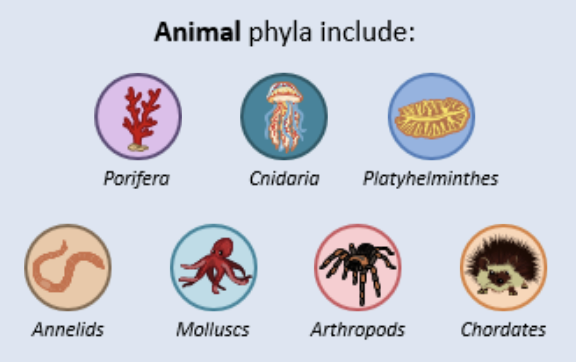5.3 Classification of Biodiversity
0.0(0)
0.0(0)
Card Sorting
1/8
There's no tags or description
Looks like no tags are added yet.
Study Analytics
Name | Mastery | Learn | Test | Matching | Spaced | Call with Kai |
|---|
No study sessions yet.
9 Terms
1
New cards
Binomial Nomenclature
According to the binomial system, every organism has a two-part scientific name:
* Genus is written first and is capitalised (e.g. *Homo*).
* Species follows in lower case (e.g. *Homo sapiens*).
* Genus is written first and is capitalised (e.g. *Homo*).
* Species follows in lower case (e.g. *Homo sapiens*).
2
New cards
Domains of Life
All living organisms are classified into one of **three domains:**
* **Eukarya** (all __eukaryotic__ organisms).
* **Archaea** (__prokaryotic__ extremophiles).
* **Eubacteria** (common pathogenic __bacteria__).
* **Eukarya** (all __eukaryotic__ organisms).
* **Archaea** (__prokaryotic__ extremophiles).
* **Eubacteria** (common pathogenic __bacteria__).
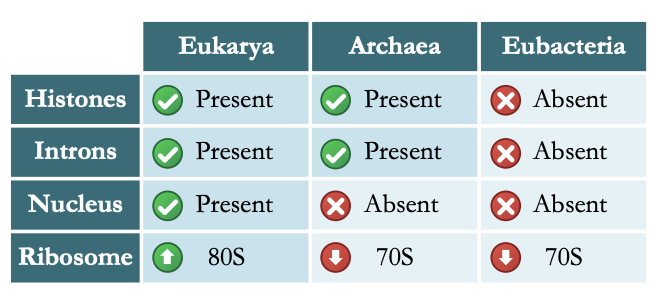
3
New cards
Taxonomy
Science of **classifying organisms** based on shared **characteristics** (or taxa).
* More taxa shared = more closely related organisms
* More taxa shared = more closely related organisms
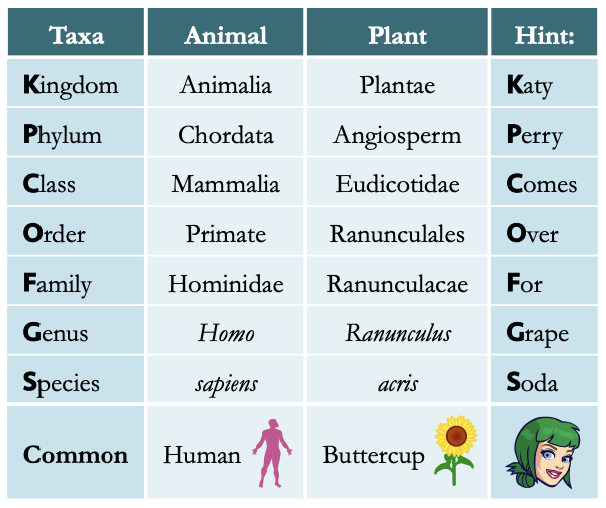
4
New cards
Natural Classification
**Grouping** organisms according to **common ancestry** rather than by common characteristics.
* This allows for species to be **identified by their evolutionary pathways** and enables the prediction of traits within a group
* This allows for species to be **identified by their evolutionary pathways** and enables the prediction of traits within a group
5
New cards
Disadvantage of natural classification
Taxonomists may need to **reclassify groups** if new phylogenetic evidence emerges.
6
New cards
Dichotomous Keys
Involves **sequentially dividing organisms** into __two categories__ until every organism is individually identified.
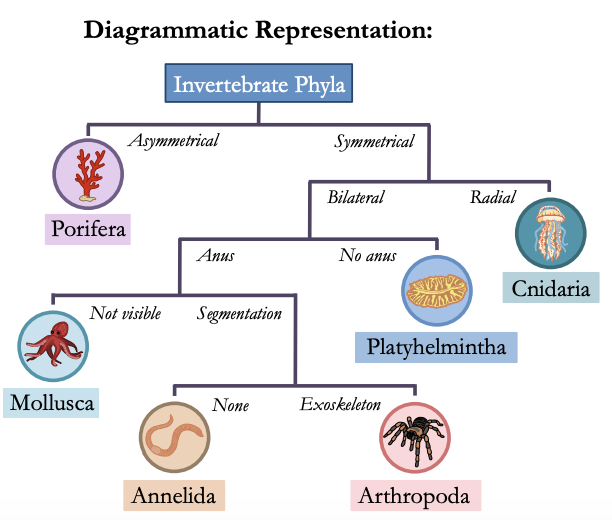
7
New cards
Phylum
Taxonomic rank below kingdom (and above class)
8
New cards
Plant phyla
* Bryophyte: mosses
* Filicinophyte: Leaves with hairs
* Coniferophyte: Pine cones
* Angiosperms: Fruits, flowers
* Filicinophyte: Leaves with hairs
* Coniferophyte: Pine cones
* Angiosperms: Fruits, flowers
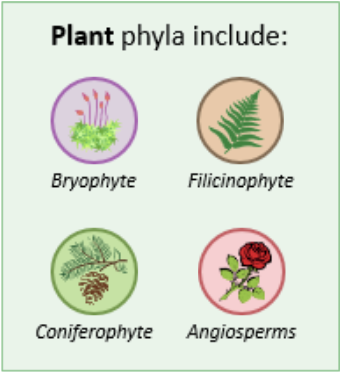
9
New cards
Animal phyla
* Porifera: Sponge
* Cnidaria: Jellyfish
* Platyhelminthes: Any worm
* Annelids: Tapeworm/store worm
* Molluscs: Molluscs
* Arthropods: Any insect, scorpions
* Chordates: **All vertebrate classes**
* Cnidaria: Jellyfish
* Platyhelminthes: Any worm
* Annelids: Tapeworm/store worm
* Molluscs: Molluscs
* Arthropods: Any insect, scorpions
* Chordates: **All vertebrate classes**
